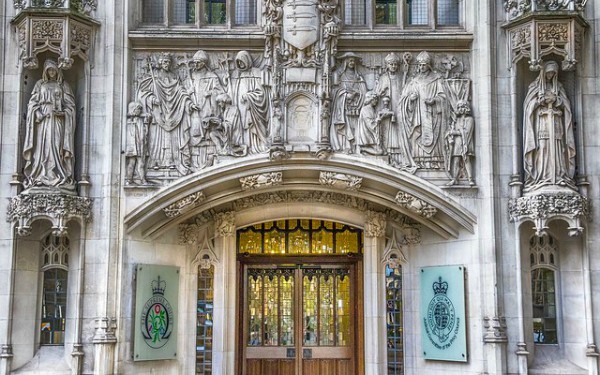
What are some efficient ways to improve the public perception of social work? (Multiple answers)
- Realistic TV and film portrayals of social work. (31%, 648 Votes)
- Less negative news coverage. (28%, 570 Votes)
- Educational government campaigns on the role of social work. (23%, 466 Votes)
- Making social workers more visible (e.g by placing them in schools). (18%, 378 Votes)
Total Voters: 963
It is now 10 years since the landmark and controversial decision of the Supreme Court in P v Cheshire West and Chester Council & Anor [2014] UKSC 19 (commonly known as ‘Cheshire West’).
The decision, in effect, expanded considerably the definition of deprivation of liberty and has had a seismic impact on the health and social care sector.
This article discusses some of the key issues.
How it changed the definition of deprivation of liberty
Before 2014, identifying whether a person was deprived of liberty always involved a fact specific consideration. The tests were applied to everyone, but the answer could differ depending on the circumstances of the individual. The determinative factor might be whether the person objected to their arrangements, the purpose of the arrangements or the ‘relative normality’ of the arrangements.
Cheshire West radically changed this. Instead of the “minute examination of the living arrangements of each mentally incapacitated person”, decision makers could simply apply an “acid test” to all such cases.
This test involves determining whether the person concerned is under continuous supervision and control, and not free to leave. Both conditions must be satisfied in order to give rise to a deprivation of liberty. Matters such as objection, purpose and relative normality are irrelevant; in the words of Lady Hale, “in the end, it is the constraints that matter”.
What have been the implications of Cheshire West?
Cheshire West is often lauded for placing centre stage the principles of non-discrimination and human rights for all. It has also, undoubtedly, simplified the test for deprivation of liberty, by replacing a fact specific consideration with a single test, applicable to all cases.
However, Cheshire West has had a stark impact on the health and social care sector, particularly local authorities. There has been a dramatic growth in the numbers of people eligible for safeguards under Article 5 of the European Convention on Human Rights (the right to liberty), and the sector has struggled to cope with this increased workload.
Last year’s Deprivation of Liberty Safeguards figures showed a 22-fold increase in the number of DoLS referrals since Cheshire West in England alone, from 13,700 in 2013-14 to 300,765 in 2022-23); 126,100 cases left unassessed; and only 19% of cases being completed within the 21-day statutory time limit (the average being 156 days).
These figures are only the tip of the iceberg; for example, they do not cover the numbers in Wales, ‘community deprivation of liberty’ outside hospitals and care homes and cases involving 16- and 17-year-olds.
In order to cope with this situation, many local authorities have developed ‘triage systems’ or ‘screening tools’ to prioritise certain DoLS cases. For example, where the person is objecting and/or physical restraint is used regularly, then the case is likely to go to the front of the queue; whereas, if a person is compliant and/or in end-of-life care and/or has a stable placement, then an assessment is unlikely.
The Court of Protection’s response to the large increase in its caseload following Cheshire West was to establish a streamlined process through which the court can authorise a deprivation of liberty in the community in ‘non-contentious’ cases (the Re X process).
Decisions are made ‘on the papers’ (without a hearing) and a rule 1.2 representative, normally a family member or friend, is appointed to provide the court with information about the person’s wishes, among other things. However, court delays and backlogs continue to cause difficulties, with Re X applications typically taking 6-12 months before being authorised.
The policy and legal concerns
Cheshire West has been deeply problematic in policy terms. It is clear from the above that the law is consistently failing to deliver adequate safeguards to vulnerable people.
Moreover, Cheshire West has extended Article 5 further into domestic settings; with many families viewing this as unnecessary state interference into private life. The acid test has never been agreed by Parliament, despite its significant cost implications.
Deprivation of liberty has become normalised post Cheshire West; large numbers of people with complex needs will now always necessarily be deprived of liberty, with little incentive for practitioners to attempt a less restrictive care plan.
Legal critics of Cheshire West point out that the European Court of Human Rights has never identified an acid test when it comes to deprivation of liberty. Instead, it looks at the person’s “concrete situation” and takes account of a whole range of criteria, such as the type, duration, effects and manner of implementation of the measure in question (the ‘Guzzardi principle’).
No other country, including any signatory to the ECHR, has adopted the approach mandated by Cheshire West.
The judicial response to Cheshire West
In the initial period following Cheshire West, it was evident that a number of lower court judges disagreed with the judgment. The most vocal critic was Mr Justice Mostyn, who attempted, unsuccessfully, to bring about a leapfrog appeal from the Court of Protection to the Supreme Court in order for Cheshire West to be reconsidered (Rochdale v KW [2014] EWCOP 45).
Both Mr Justice Mostyn and Sir William Charles, former vice president of the Court of Protection, submitted in evidence to Parliament’s joint committee on human rights in 2018 that the acid test was “legally wrong” and should be revisited by the Supreme Court.
However, this rearguard action subsequently dissipated. In more recent decisions, Court of Protection judges appear to be more comfortable in applying the broad definition of deprivation of liberty in Cheshire West, even in domestic settings (for example, AB (deprivation of liberty) [2020] EWCOP 39 and Re AEL (Mental Capacity Act 2005) [2021] EWCOP 9).
However, cracks have appeared. The Court of Appeal confirmed that Cheshire West has no place when life-saving treatment is being administered in hospital and the treatment is the same as would have been provided to someone of “sound mind” (R (Ferreira) v HM Senior Coroner for Inner South London [2017] EWCA Civ 31).
The recent decision of Mrs Justice Lieven in Re SM (Deprivation of Liberty; Severely Disabled Child) [2024] EWHC 493 casts doubt on the ‘nuanced acid test’ for children set out in Cheshire West.
The judge also concluded, contrary to Cheshire West, that constant supervision and control is only relevant insofar as it demonstrates the person is not free to leave, and deprivation of liberty does not arise where the reason the person is unable to leave is because of their “profound disabilities”, rather than the action of the state.
10 years since peers declared DoLS ‘not fit for purpose’
This month also marks the ten-year anniversary of the report of the House of Lords select committee on the Mental Capacity Act, published just a few days before Cheshire West. The report described the Mental Capacity Act as a “visionary piece of legislation”, which “continues to be held in high regard” but has not been implemented properly.
But the report directed strong criticism towards the DoLS. The committee found that the DoLS were “frequently not used when they should be, leaving individuals without the safeguards Parliament intended” and care providers “vulnerable to legal challenge”.
There was a “disconnect” between the wider Mental Capacity Act and the DoLS; they were regarded as separate pieces of legislation, with the empowering principles of the Mental Capacity Act not being applied to the DoLS.
The committee concluded that the DoLS were “not fit for purpose” and must be replaced. Ten years later, this recommendation has still not been implemented.
The Liberty Protection Safeguards
The Liberty Protection Safeguards (LPS) is the replacement scheme for the DoLS. It is largely based on a review into the deprivation of liberty by the Law Commission and was introduced through the Mental Capacity (Amendment) Act 2018.
The LPS is essentially intended to be an Article 5 compliant scheme that can cope with the sheer volume of deprivation of liberty cases post Cheshire West. It would achieve this by focusing resources on key areas.
There would be a twin-track assessment process (not dissimilar to the Re X process), with ‘enhanced safeguards’ directed at cases where the person, or someone else, is objecting to the arrangements. In other cases, where there were no objections, a streamlined approach would apply.
There would be a reduction in the number of assessments, a new renewal process, greater use of existing assessments and the deployment of a wider range of clinicians. Importantly, the LPS would also remove the costly and lengthy process of seeking Court of Protection authorisation for deprivations of liberty in the community, and for young people aged 16 or 17.
Future prospects for deprivation of liberty
In April 2023, the government confirmed that the implementation of the LPS would be delayed “beyond the life of this Parliament”. This means it will be left to the new government to make decisions about whether and when to implement the replacement scheme.
For the foreseeable future, there will need to be a renewed focus on the DoLS and Court of Protection as the means through which deprivation of liberty can be authorised. It remains to be seen whether this will result in a reduction in delays and backlogs.
It is hoped that the courts will show a renewed interest in the meaning of deprivation of liberty. The last 10 years have seen surprising little case law on the precise meaning of the acid test.
Ongoing uncertainties include whether freedom to leave means leaving a place permanently, or being able to come and go from the accommodation as the person pleases, and how constant or continuous the supervision and control needs to be.
The European Court of Human Rights has yet to consider the meaning of deprivation of liberty in the context of people in a similar position to those in Cheshire West. Perhaps the 10-year anniversary will be the trigger for judicial revaluation and clarification of Cheshire West?
Tim Spencer-Lane is a lawyer specialising in adult social care, mental capacity and mental health and legal editor of Community Care Inform.
To mark the 10-year anniversary of Cheshire West, the Law Society has updated its 2015 guide to understanding when someone is deprived of their liberty.





 Family help: one local authority’s experience of the model
Family help: one local authority’s experience of the model  ‘I spent the first three months listening’: how supportive leadership can transform children’s services
‘I spent the first three months listening’: how supportive leadership can transform children’s services  How senior leaders in one authority maintain a culture of excellence
How senior leaders in one authority maintain a culture of excellence  How staff support ensures fantastic outcomes for children and families
How staff support ensures fantastic outcomes for children and families  Workforce Insights – showcasing a selection of the sector’s top recruiters
Workforce Insights – showcasing a selection of the sector’s top recruiters 

 Facebook
Facebook X
X LinkedIn
LinkedIn Instagram
Instagram
Comments are closed.